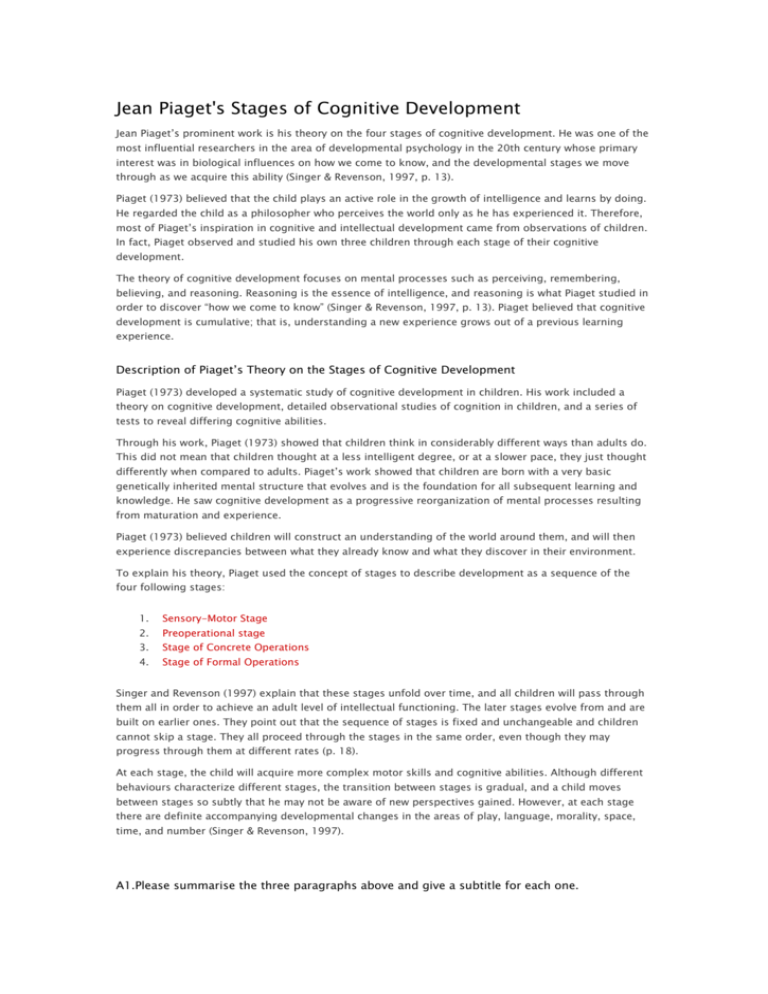Cognitive development refers to the way in which children's thinking and problem-solving skills develop and improve over time. It is an important aspect of child development and has a major influence on a child's ability to learn and function in their environment.
There are several different theories of cognitive development, but one of the most well-known is the theory proposed by Jean Piaget. According to Piaget, children go through four stages of cognitive development: the sensorimotor stage, the preoperational stage, the concrete operational stage, and the formal operational stage.
During the sensorimotor stage, which occurs from birth to about two years of age, children learn about the world through their senses and physical interactions with objects. They begin to understand that objects continue to exist even when they are out of sight and develop the concept of object permanence.
The preoperational stage, which occurs from about two to seven years of age, is characterized by the development of symbolic thought. Children begin to use symbols, such as words and pictures, to represent objects and ideas. They also become more adept at solving problems through trial and error.
The concrete operational stage, which occurs from about seven to eleven years of age, is marked by the development of logical thinking and the ability to perform mental operations. Children become able to understand the concept of conservation, or the idea that the amount of a substance remains the same even when its appearance changes.
The final stage of cognitive development, the formal operational stage, occurs from about eleven years of age and beyond. During this stage, children develop the ability to think abstractly and perform more complex mental operations. They become more adept at logical reasoning and are able to consider multiple viewpoints and perspectives.
It is important to note that cognitive development is a continuous process and that children may not progress through the stages in a strictly linear fashion. Some children may reach certain stages earlier or later than others, and individual differences in cognitive development are common.
Cognitive development is influenced by a variety of factors, including genetics, the child's environment, and the child's experiences and interactions with the world around them. Providing children with a supportive and stimulating environment, including opportunities for play and exploration, can help to facilitate their cognitive development.
In conclusion, the concept of cognitive development is central to our understanding of how children think and learn. It is a complex and dynamic process that begins in early childhood and continues throughout life. By understanding the stages of cognitive development and the factors that influence it, we can better support and nurture children's cognitive development and help them reach their full potential.



:max_bytes(150000):strip_icc()/what-is-cognition-2794982_final1-fc2c7c2b8e77444f84ca5726400f1a3d.png)




